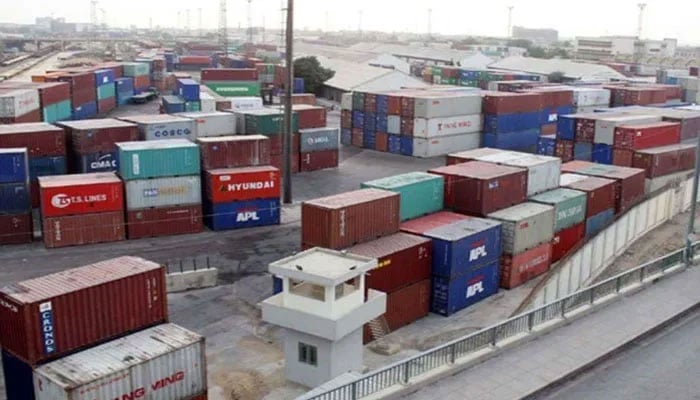Pakistan ranks 101 among 158 countries in Illicit Trade Index 2025
According to Illicit Trade Index Report, Pakistan ranks 101 out of 158 countries, with composite score of 44.5
ISLAMABAD: Pakistan ranks 101 out of 158 countries in the Illicit Trade Index 2025, threatening commerce and investment.
The illicit trade in five sectors is causing a whopping revenue loss of Rs751 billion, with share of illicit trade in tobacco topping, causing annual revenue losses of Rs300 billion to the country’s national exchequer.
These startling disclosures were made in a report, “Pakistan’s Battle Against Illicit Trade: An Analysis of Challenges and Pathways to Resilience,” launched jointly by the Policy Research Institute of Market Economy (PRIME) and Transitional Alliance to Combat Illicit Trade (TRACIT) here on Thursday. Out of Rs751 billion revenue losses, the illicit tobacco is causing revenue loss of Rs300 billion, pharmaceuticals Rs60-65 billion, tires and lubricants Rs106 billion, petrol and diesel Rs270 billion and tea Rs10 billion on a per annum basis.
According to the Illicit Trade Index Report, Pakistan ranks 101 out of 158 countries, with a composite score of 44.5, placing it below the global average of 49.9. In contrast, the neighboring countries have fared well with China at 40th rank, India at 52nd, Sri Lanka at 73rd, and Bangladesh at 95th. Similarly, comparison with emerging economies also shows that Pakistan is lagging behind all of them.
Pakistan’s performance across six dimensions of the Index can be gauged that the highest score is observed in Trade, Customs and Borders (75.4), indicating relatively strong border controls and customs management mechanisms. However, Supply Chain Intermediaries (25.9) and Sectoral Illicit Trade Indicators (29.3) score notably low, pointing to serious vulnerabilities in internal trade networks and sector-specific compliance. Moreover, moderate scores in Taxation and Economic Environment (47.3), Regulatory Framework and Enforcement (46.4) and Criminal Enablers of Illicit Trade (42.7) suggest systemic weaknesses in policy implementation and enforcement capacity. Overall, while Pakistan shows slight competence in managing its borders, the internal regulatory and economic environment still facilitates illicit trade, underscoring the need for comprehensive reforms beyond border controls.
Two reports were launched — TRACIT’S 2025 Global Illicit Trade Index and PRIME’s Combatting Illicit Trade in Pakistan: A Structural and Policy Analysis. These reports provide analysis of how policy weaknesses, enforcement gaps, and structural economic distortions have allowed illicit markets to flourish. They underline the urgent need for coordinated action across taxation policy, regulatory governance, border management, and consumer protection.
Jeffrey P Hardy, Director General of TRACIT, highlighted that Pakistan’s concerning low ranking on the illicit trade indicates that “effective enforcement of policy is needed on all fronts. The most important step would be the appointment of a National Illicit Trade Coordinator for effective monitoring and enforcement.”
The Chief Guest at the report launch, Rana Ihsaan Afzal Khan, Coordinator to PM on Commerce, affirmed the government of Pakistan’s strong understanding of the vital link between policy and enforcement. He cited the negative revenue impact that high taxes had on the beverage sector, specifically milk and juice. On the enforcement side, he noted that the FBR had been taking lead for effective enforcement through installation of scanners at the Torkham border, reducing human interaction, building capacity, increasing human resource, and digitising procedures.
-
 Rising Energy Costs Put UK Manufacturing Competitiveness At Risk, Industry Groups Warn
Rising Energy Costs Put UK Manufacturing Competitiveness At Risk, Industry Groups Warn -
 Kate Middleton Makes Glitzy Return To BAFTAs After Cancer Diagnosis
Kate Middleton Makes Glitzy Return To BAFTAs After Cancer Diagnosis -
 NFL Star Rondale Moore Dies Aged 25, Minnesota Vikings Pay Tribute
NFL Star Rondale Moore Dies Aged 25, Minnesota Vikings Pay Tribute -
 Kim Kardashian Makes Huge Career Move Weeks After Going Public With Lewis Hamilton
Kim Kardashian Makes Huge Career Move Weeks After Going Public With Lewis Hamilton -
 Shia LaBeouf Draws Attention For Sweet Reason After Spending Time In Jail Over Brawl Incident Amid Mardi Gras Bash
Shia LaBeouf Draws Attention For Sweet Reason After Spending Time In Jail Over Brawl Incident Amid Mardi Gras Bash -
 Princess Eugenie, Beatrice Receive Strong Warning After Andrew Arrest: 'Zero Tolerance'
Princess Eugenie, Beatrice Receive Strong Warning After Andrew Arrest: 'Zero Tolerance' -
 Rihanna 38th Birthday Detail Breaks The Internet, Featuring Unexpected Huge Item
Rihanna 38th Birthday Detail Breaks The Internet, Featuring Unexpected Huge Item -
 Liza Minnelli Recalls Rare Backstage Memory With Mum Judy Garland In New Memoir
Liza Minnelli Recalls Rare Backstage Memory With Mum Judy Garland In New Memoir -
 Armed Intruder Shot Dead At Trump's Mar-a-Lago Residence: US Secret Service
Armed Intruder Shot Dead At Trump's Mar-a-Lago Residence: US Secret Service -
 Total Lunar Eclipse: What You Need To Know And Where To Watch
Total Lunar Eclipse: What You Need To Know And Where To Watch -
 Timothee Chalamet Admits To Being Inspired By Matthew McConaughey's Performance In 'Interstellar'
Timothee Chalamet Admits To Being Inspired By Matthew McConaughey's Performance In 'Interstellar' -
 'Determined' Savannah Guthrie Plans To Honour Her Mother Nancy With Major Move: 'It's Going To Be Emotional'
'Determined' Savannah Guthrie Plans To Honour Her Mother Nancy With Major Move: 'It's Going To Be Emotional' -
 Train's Pat Monahan Blows The Lid On 'emotional' Tale Attached To Hit Song 'Drops Of Jupiter'
Train's Pat Monahan Blows The Lid On 'emotional' Tale Attached To Hit Song 'Drops Of Jupiter' -
 Kurt Russell Spills The Beans On His Plans For Milestone Birthday This Year: 'Looking Forward To It'
Kurt Russell Spills The Beans On His Plans For Milestone Birthday This Year: 'Looking Forward To It' -
 PayPal Data Breach Exposed Sensitive User Data For Six-month Period; What You Need To Know
PayPal Data Breach Exposed Sensitive User Data For Six-month Period; What You Need To Know -
 Prince William Receives First Heartbreaking News After Andrew Arrest
Prince William Receives First Heartbreaking News After Andrew Arrest




